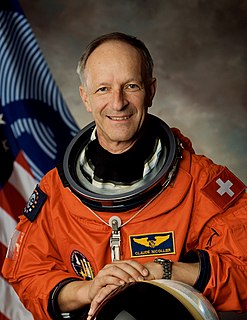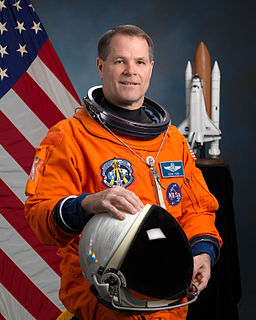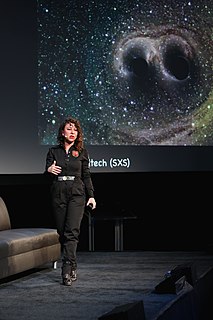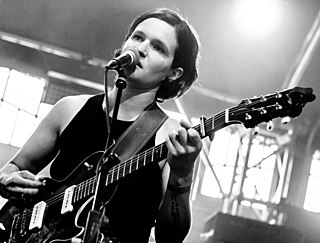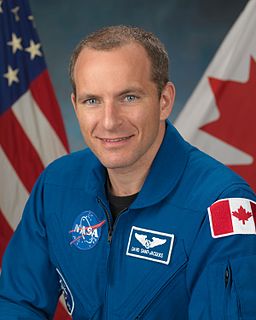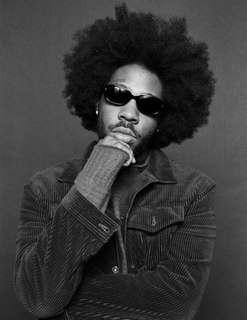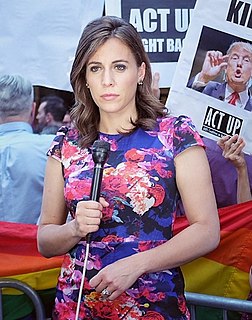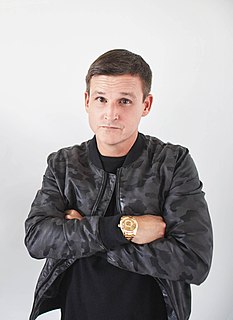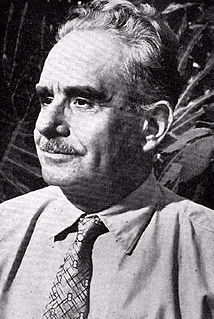Top 1200 Space Program Quotes & Sayings - Page 15
Explore popular Space Program quotes.
Last updated on April 21, 2025.
When you have emptied all content - thoughts, desires, memories, projections, hopes - when all is gone, for the first time you find yourself, because you are nothing but that pure space, that virgin space within you. Unburdened by anything, that contentless consciousness, that's what you are! Seeing it, realizing it, one is free. One is freedom, one is joy, one is bliss.
I would die to record in space. That would be the coolest. If I got the option of, going into outer space and hanging out there for a day, and then coming back home and dying the next day, or just waiting around to see if there's any opportunity for the technology to develop so that I might experience outer space sometime in the future, I would probably take the ride today and die tomorrow. I'd be happy just hanging out between the moon and the Earth, getting a view.
The ability of the humans to not only function in space but be very functional when they arrive at their destination, those are the kinds of things we're learning from the science. Fuel transfer technologies and all the things we can learn about the space environment are all valuable to us for pressing on out.
If you're going to lead a space frontier, it has to be government; it'll never be private enterprise. Because the space frontier is dangerous, and it's expensive, and it has unquantified risks. And under those conditions, you cannot establish a capital-market evaluation of that enterprise. You can't get investors.
The partisanship surrounding space exploration and the retrenching of U.S. space policy are part of a more general trend: the decline of science in the United States. As its interest in science wanes, the country loses ground to the rest of the industrialized world in every measure of technological proficiency.
Organizing time is exactly like organizing space. Just as a closet is a limited amount of space into which you must fit a certain number of objects, a schedule is a limited space into which you must fit a certain number of tasks. Each day and each week is simply a container, a storage unit with a definite capacity. The trick is to treat time not as an abstraction but as something solid that you can hold on to and move around.
If we can avoid disaster for the next two centuries, our species should be safe as we spread into space. If we are the only intellegent beings in the galaxy we should make sure we survive and continue. . . . Our only chance of long-term survival is not to remain inward looking on planet Earth but to spread out into space. We have made remarkable progress in the last hundred years. But if we want to continue beyond the next hundred years, our future is in space.
Psychedelics are not flashlights into the chaos of the Freudian unconscious, they are tools for mathematically unpacking your mind into a higher dimensional space. In the Newtonian and print created space that we are walking around in you, are like a self extracting archive, that hasn't self extracted itself yet.
Flying has changed how we imagine our planet, which we have seen whole from space, so that even the farthest nations are ecological neighbors. It has changed our ideas about time. When you can gird the earth at 1,000 m.p.h., how can you endure the tardiness of a plumber? Most of all, flying has changed our sense of our body, the personal space in which we live, now elastic and swift. I could be in Bombay for afternoon tea if I wished. My body isn't limited by its own weaknesses; it can rush through space.
The intelligence services would probably be in a better position to make an assessment of the advancement of the Iranian nuclear program than Podhoretz or Ledeen. They don't have access to any specific information. So for them to dismiss it has no great value because they have no authority whatsoever on this issue. For them to push forward with their efforts to get a war started between the U.S. and Iran, you certainly cannot say that Iran does not have a nuclear program. If you say that, then the justification for war has basically been eliminated.
Civil society space provides the oxygen for citizens to participate and meaningfully hold their governments and the private sector to account - and ensure that decisions are made in the interest of the majority and not the few. Without it, citizens have limited space to dissent and challenge the elites.
Space is our tool to take care of the world. From space, we know the Earth is fragile, and we can follow oil spills and forest fires, and monitor the environment and save it. The needs of remote communities and the needs of astronauts are similar. Canada is a country that is big and has a lot of people living in faraway places. Physicians in remote areas need to have contact with more senior colleagues. We depend on telehealth for advice, X-rays, labs. At the most simple technical level, space technology contributes to remote health care.

